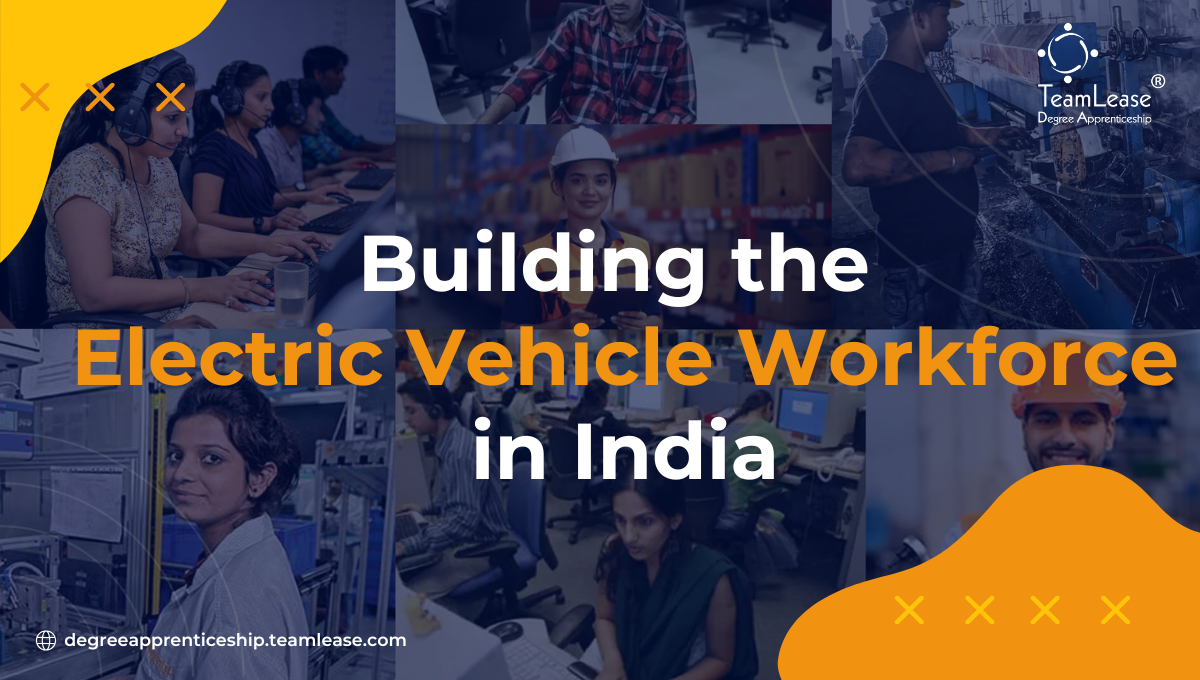India’s energy landscape is undergoing a remarkable transformation, driven by a commitment to sustainability and green energy to combat climate change. A major part of this journey is the transition to electric vehicles (EVs), which is essential in decarbonizing transportation and aligning with India’s ambitious net-zero emissions target by 2070. To meet these goals, the country aims to source 50% of its energy from renewables by 2030 and reduce carbon emissions by one billion tonnes. As the EV sector expands, the challenge of building a skilled electric vehicle workforce capable of sustaining this growth has become paramount.
Government Initiatives Fueling EV Growth
India’s EV market is anticipated to grow by 45-50% annually, potentially reaching Rs 20 trillion by 2030. Key government schemes, such as the FAME (Faster Adoption and Manufacturing of Hybrid and Electric Vehicles) initiative, have set ambitious goals to electrify 70% of commercial vehicles, 30% of private cars, and 80% of two- and three-wheelers by 2030. Complementing this is the Rs 10,900 crore PM E-Drive subsidy scheme, which has facilitated over 1.6 million EV purchases since 2015. Additionally, a Rs 2,000 crore allocation for establishing a nationwide fast-charging network ensures the infrastructure needed for large-scale EV adoption is in place, making EVs a practical choice for consumers.
While supportive policies are pivotal, achieving these targets requires a skilled electric vehicle workforce with expertise in EV technology, manufacturing, and after-sales services. Projections estimate that over 200,000 skilled workers will be needed in the EV sector by 2030. To bridge this gap, aligning educational programs with industry requirements and developing targeted skilling initiatives are crucial.
Addressing the Rising Talent Gap in the EV Sector
To remain competitive globally, India must focus on equipping its workforce with EV-specific skills. The Society of Indian Automobile Manufacturers (SIAM) predicts the need for 100,000 to 200,000 skilled professionals by 2030, with an annual intake of EV-ready workers needing to double to 30,000. However, the sector faces a 40-45% skills deficit, which presents a considerable challenge to sustainable growth.
The EV industry offers substantial employment potential, with estimates suggesting up to 10 million direct and 50 million indirect jobs by 2030. These positions will cover the full EV value chain, from manufacturing and assembly to after-sales and maintenance. In particular, technical roles in battery engineering, power electronics, and software development, along with skills in battery chemistry and AI-driven data analysis, are in high demand. To close this talent gap, substantial investments in skilling programs, apprenticeships, and curriculum modernization are essential.
Apprenticeships: Bridging the Skills Gap
Apprenticeships play a vital role in preparing India’s electric vehicle workforce. TeamLease Degree Apprenticeship is actively addressing this skills gap by training 3,000 to 4,000 apprentices in collaboration with original equipment manufacturers (OEMs) across the EV ecosystem. These apprenticeships encompass manufacturing, assembly, repair, and maintenance, equipping individuals with the expertise needed in key areas such as electric powertrain technology, battery systems, and EV charging infrastructure.
To ensure industry-relevant training, TeamLease partners with leading educational institutions and sector skill councils to design WILPs that blend theoretical knowledge with hands-on experience, resulting in certifications and diplomas recognized by bodies like the National Occupational Skills Standards (NOSS) and PACTS. This approach empowers apprentices with a strong foundation in critical EV competencies, preparing them for success in a dynamic market.
The automotive industry has been a leading sector in adopting apprenticeship programs, and recent studies show that around 81% of automotive employers plan to further increase their apprenticeship engagement. This sector also boasts one of the highest apprenticeship completion rates. Additionally, nearly 20% of employers indicate a preference for recruiting female apprentices.
For a deeper look into the engagement of automotive employers with apprentices, download our Apprenticeship Outlook Report.
Paving the Way to a Sustainable Future
As India drives forward with its EV initiatives, the demand for a skilled workforce is greater than ever. TeamLease is at the forefront, combining academic learning with practical application to equip apprentices with the skills required in the evolving EV landscape. By prioritizing industry-relevant training and career progression, we are actively shaping a workforce ready to meet the demands of India’s green mobility future.
The EV sector represents not only an environmental solution but also a catalyst for economic growth and employment. With a focus on sustainable energy and an emphasis on skill development, India is positioned to lead the global EV revolution, creating millions of jobs and setting the stage for a greener, more prosperous future.
The blog is an excerpt from an article authored by our Chief Strategy Officer Sumit Kumar and published in Manufacturing Today



 Rules, 2025' 2.png)
No comments yet
Your Comment